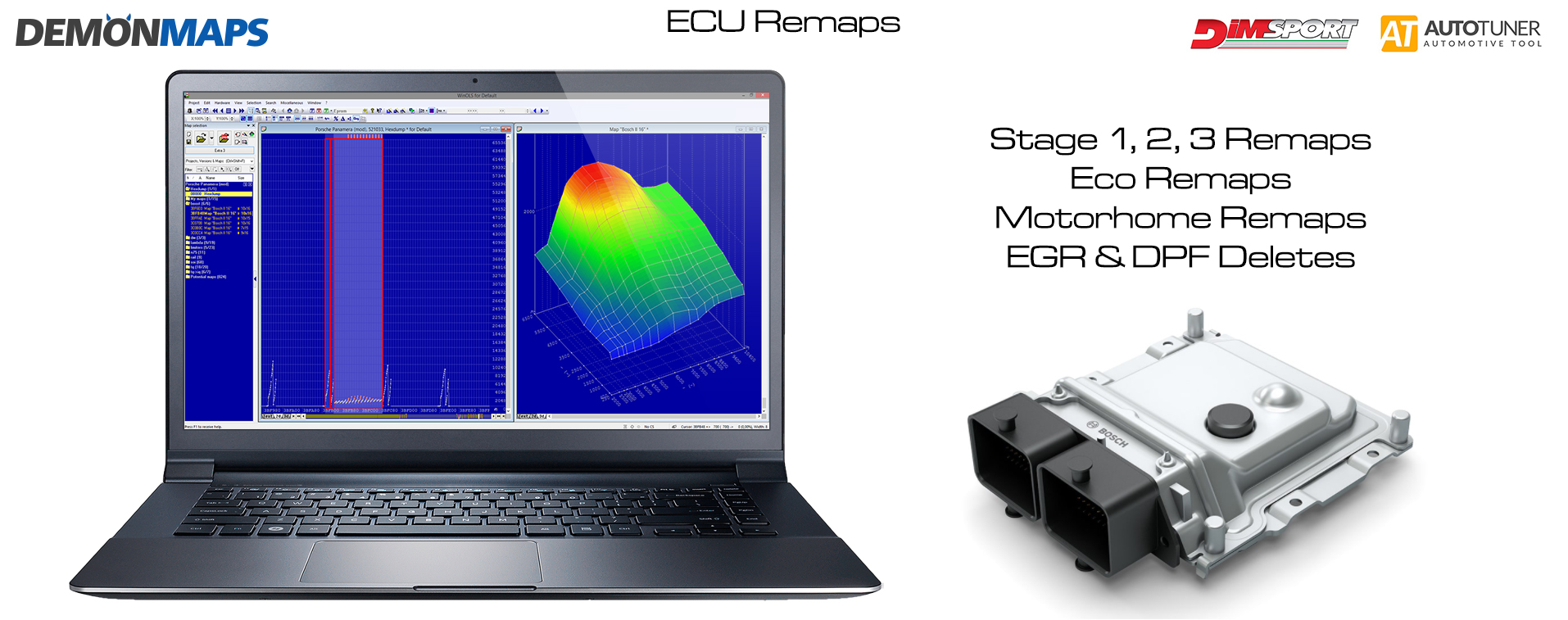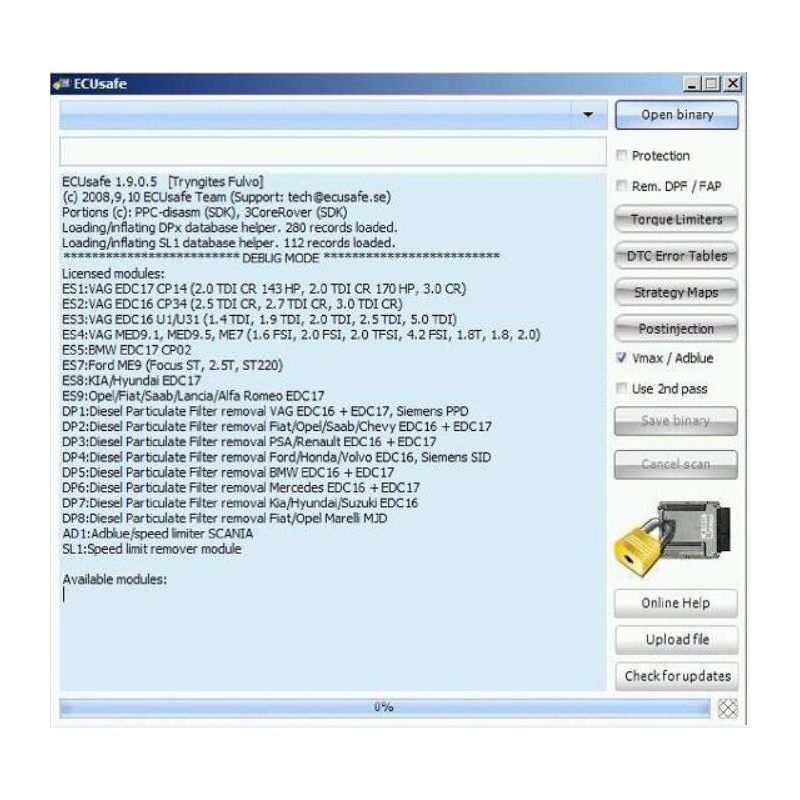Beautiful Info About Is Ecu Remapping Safe

Decoding ECU Remapping
1. Understanding the Basics
So, you're thinking about getting your car's ECU remapped, huh? It's like giving your car a software update, but instead of new emojis, you're potentially unlocking hidden performance. The Engine Control Unit, or ECU, is basically your car's brain. It controls everything from fuel injection to ignition timing. Remapping involves tweaking the software within the ECU to optimize these parameters, aiming for more power, better fuel economy, or both. But before you jump in, let's address the elephant in the room: is it actually safe?
Think of it this way: your car's engine is built with certain tolerances in mind. The manufacturer sets these tolerances to ensure reliability and longevity under a wide range of driving conditions. Remapping can push these boundaries. Now, whether that's a thrilling adventure or a recipe for disaster depends on several factors. A poorly executed remap can indeed cause problems. We're talking about potential engine damage, reduced lifespan, and even voiding your warranty.
But here's the kicker: a well-executed remap, done by a skilled professional, can be perfectly safe and even beneficial. The key is to understand what you're doing and to choose a reputable tuner who knows their stuff. They will consider the limitations of your engine and components and make adjustments accordingly. It's like giving your engine a personalized tailored suit instead of squeezing it into off-the-rack clothes that don't quite fit. A good tuner will prioritize reliability alongside any performance gains.
Ultimately, the "safety" of ECU remapping isn't a simple yes or no answer. It's more like a "it depends" situation. Like anything involving your car, knowledge is power. So, let's dig a little deeper into the factors that can make or break your ECU remapping experience.

This Is How You Remap The ECU Of Your Electric Car! But Tuning
The Good, the Bad, and the Remapped
2. Weighing the Pros and Cons
Alright, let's break down the potential upsides and downsides of ECU remapping. On the positive side, a successful remap can unlock noticeable improvements in your car's performance. We're talking about increased horsepower and torque, which translates to quicker acceleration and a more responsive driving experience. For some, it's all about that extra oomph when overtaking on the highway.
Furthermore, remapping can also improve fuel efficiency in some cases. This might sound counterintuitive, especially if you're chasing more power, but optimized fuel and ignition settings can sometimes lead to better mileage under normal driving conditions. Imagine having a slightly more powerful car that also sips fuel a little more gently. Who wouldn't want that?
However, it's not all sunshine and rainbows. The potential risks are very real. As mentioned before, an aggressive or poorly executed remap can put undue stress on engine components, leading to premature wear and tear, and potentially catastrophic failure. Think of it like consistently running a marathon without proper training. Your body will eventually protest. Overheating, knocking, and damaged turbochargers are just a few of the potential issues. And, sadly, if something goes wrong, your car manufacturer might not be too sympathetic, as remapping often voids your warranty.
Another often overlooked consideration is the impact on emissions. Remapping can sometimes affect your car's emissions levels, potentially causing it to fail emissions tests. This can be a big problem, especially if you live in an area with strict emissions regulations. Also, make sure to inform your insurance company, as modifications can affect your coverage. So, it's important to weigh these risks carefully before taking the plunge. The key is to make an informed decision, based on your specific needs and circumstances.

Choosing the Right Tuner
3. Finding a Reputable Professional
If you're leaning towards getting your ECU remapped, the single most important factor is choosing the right tuner. This isn't the time to cut corners or go with the cheapest option. You're entrusting someone with the "brain" of your car, so you want to make sure they know what they're doing. Think of it like going to a surgeon; you wouldn't want the cheapest surgeon, you'd want the most skilled and experienced one.
Look for a tuner with a solid reputation, plenty of experience, and positive reviews. Check online forums, ask for recommendations from fellow car enthusiasts, and do your research. A good tuner will be able to explain the remapping process clearly, answer your questions thoroughly, and provide evidence of their expertise. They should also be willing to listen to your needs and tailor the remap to your specific driving style and goals.
A crucial element is their approach to tuning. Do they use a generic "cookie-cutter" map, or do they custom-tune each car individually? The latter is always preferable, as it allows the tuner to optimize the settings for your specific engine and modifications. A good tuner will also use a dyno to measure the performance gains and ensure that everything is running smoothly. Think of the dyno as a health check for your engine, ensuring everything is operating within safe parameters.
Furthermore, a reputable tuner will also be upfront about the potential risks and limitations of remapping. They won't promise unrealistic performance gains or gloss over the potential downsides. They'll be honest and transparent about what they can achieve and what to expect. After all, they're not selling you snake oil. They're providing a skilled service that should improve your driving experience without compromising the longevity of your vehicle.

Restore Your ECU To Factory Stock Settings HDI Tuning Limited
Understanding Remapping Options
4. Navigating the Tuning Stages
You'll often hear tuners talking about "stages" of remapping, such as Stage 1, Stage 2, and so on. These stages generally refer to the level of modification and the corresponding performance gains. Understanding these stages is essential to choosing the right option for your car and your needs. Imagine it like choosing the right difficulty level on a video game; you don't want to start on "hard" if you're a beginner.
Stage 1 remaps are typically the mildest form of tuning and are usually designed for cars with completely stock hardware. They involve optimizing the ECU settings to extract more power and torque without requiring any physical modifications. Think of it as optimizing your existing engine without adding any new parts. Gains are usually moderate but can still make a noticeable difference in everyday driving.
Stage 2 remaps generally require some hardware upgrades, such as a performance exhaust system or an upgraded air intake. These modifications allow the engine to breathe more freely, enabling the tuner to further optimize the ECU settings for even greater power gains. Picture it like giving your engine a better set of lungs. However, these modifications also come with increased cost and complexity, so it's important to weigh the benefits carefully.
Beyond Stage 2, you're usually getting into more serious modifications, such as upgraded turbochargers, fuel injectors, and even internal engine components. These modifications are typically aimed at achieving maximum performance and are often used in track cars or dedicated performance builds. But with that extra performance also comes higher risks, and require careful planning and execution to ensure reliability. Remember, the goal is not just more power, but reliable power.

Frequently Asked Questions (FAQs)
5. Your Burning Questions Answered
Still have some lingering questions about ECU remapping? Let's tackle some of the most common concerns:
Q: Will remapping void my car's warranty?A: Most likely, yes. Remapping is considered a modification, and manufacturers typically have clauses in their warranty agreements that exclude coverage for damage caused by modifications. However, some tuners offer warranty options to cover potential issues arising from their remaps. Always check with your car manufacturer and tuner to understand the warranty implications.
Q: How much does ECU remapping cost?A: The cost can vary widely depending on the tuner, the complexity of the remap, and the type of car. Generally, you can expect to pay anywhere from a few hundred to over a thousand dollars. Remember, you're paying for expertise and skill, not just a software download. Always get quotes from multiple tuners and compare their services and pricing.
Q: Is remapping safe for my specific car model?A: The safety of remapping depends on several factors, including the condition of your engine, the type of remap, and the skill of the tuner. Some car models are more receptive to remapping than others. A reputable tuner will be able to assess your car's suitability for remapping and advise you accordingly. Don't be afraid to ask questions and get a professional opinion.
Q: Will remapping affect my car's fuel economy?A: It depends! A performance-focused remap might decrease fuel economy, especially if you're constantly using the extra power. However, some remaps are designed to improve fuel efficiency during normal driving conditions. Talk to your tuner about your goals, and they can tailor the remap accordingly.
Hopefully, this has demystified the world of ECU remapping a bit. Remember, informed decisions are always the best decisions. So, do your research, choose wisely, and enjoy the ride!
